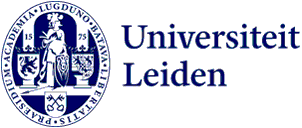
Collaboration across borders: virtual learning between Leiden University College and Myanmar
Being in class with students more than 8,000 kilometres away might sound impossible, but Jyothi Thrivikraman, Assistant Professor at Leiden University College, proved otherwise. She set up a Virtual International Collaboration Project (VIS) with the Virtual Federal University in Myanmar: ‘You get a really different perspective with such an exchange.’
The idea to set up a VIS-course started with Thrivikraman’s involvement in a meeting of the Humanities across Borders (HAB) programme of the International Institute for Asian Studies at Leiden University in Senegal. ‘During the meeting, we were talking about knowledge production and who is involved in that. We worked with indigo dyers, reverse glass painters, potters and bead makers. That led us to think about how we can form relationships with people outside of a formal academic setting.’
In Senegal, Thrivikraman met Dr. Tharaphi Than, Associate Professor at Northern Illinois University. They ended up talking about the situation in Myanmar: ‘Tharaphi was talking about the coup, COVID and the civil war and how this has displaced many young people who are now part of the resistance. Many of these people were actively seeking forms of education outside the military-run systems. In Senegal, we started thinking about ways we could facilitate this, and we decided to apply for a VIS. We collaborated with the Virtual Federal University, which offers classes for students who are part of the Civil Disobedience Movement in Myanmar.’
With Virtual International Collaboration Projects (VIS), universities give their students the opportunity to gain international experience from the Netherlands. Physical, financial, cultural or other obstacles are less or no obstacle to participation.

Engaging with different perspectives
The VIS allowed for the opportunity to engage LUC students in this process as well. ‘I decided to implement the VIS in my Social Determinants of Health class here at LUC. In this course, we focus on the fact that health is not merely the health system: structures of power and how our society is organised also influences our wellbeing. This topic seemed relevant for both LUC students as well as the students in Myanmar.’
Throughout the class, the students in the Netherlands and in Myanmar shared their perspectives on topics like place, food, words, and crafts, the four HAB pillars. Coming from different backgrounds and residing in completely different countries facilitated interesting dialogues: ‘I think it is central to provide different perspectives and to facilitate a dialogue exchange and dialogue. The VFU students were taking lessons in what we may consider unconventional spaces, such as resistance camps in the jungle. Yet, they came to class having done the readings and ready to engage with the LUC students. They shared lessons from their in-situ learning and embodied experience while resisting and running away from the military.’
‘The VFU students were taking lessons in what we may consider unconventional spaces, such as resistance camps in the jungle.’
Navigating difficult security situations
The security situation in Myanmar posed its challenges throughout the course: ‘One of our Burmese instructors had to flee the country during the course, because the junta (military government) decided that all young men would be recruited to fight. The students and instructors in Myanmar had to use pseudonyms, so we had to be careful in ways that we would not be careful in a VIS in a less sensitive space. Together with our local colleagues, we discussed how we could make sense of such situations.’
‘It was an invaluable experience’
The focus was not merely on challenges, but on finding connections. ‘There were moments of laughter throughout the exchange, as students shared details about fast food outlets in their respective locations, words for menstruation and even opium cultivation.’
Thrivikraman is happy with the responses she got from her students: ‘It was not always easy, but my students were incredibly patient. I was completely surprised at how well it went and how open my students were to this type of engagement, they were very thoughtful. They even sent me e-mails thanking me for this class, which is something that has never happened to me before.’
Feedback from a student
‘I think that one of the most valuable lessons that I have learned so far during this course is that different problems require other and more multifaceted ways of thinking, ways that I haven’t even been able to think.’
Learn Anywhere
Setting up the VIS course would not have been possible without the technology available in the so-called Learn Anywhere-room. This room is equipped with technology to facilitate hybrid teaching, so that it should not matter where the student is physically located. Thrivikraman: ‘I want to give a massive shoutout to the Future Learning Office. The team was incredibly helpful and patient and they made sure I understood everything before I started my class. This class would not have been possible without their help.’
It took a lot of work and effort to put the course together, but this does not hold Thrivikraman back from applying for another VIS: ‘I think it is a brilliant way to think about education in a non-traditional setting: you do not have to be in a building to be in University. I have to acknowledge the work and effort that Tharaphi and the local instructors put in as well. If it wasn't for them, I could not have done it.’
LUC was launched by Leiden University in 2010. Today, the college has some 600 students enrolled in its small-scale education programme, with an average of only 18 students per class. Its staff are also involved in numerous research projects and scientific collaborations, which collectively enrich their approach to teaching. Every year, LUC graduates gain places on Masters programmes at the best universities around the world, and the College’s 1700 alumni have gone on to establish themselves in a wide range of careers.
Text: Nadine Louissen
Images: Arash Nikkhah
